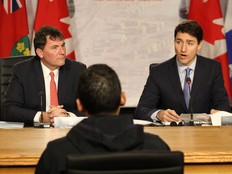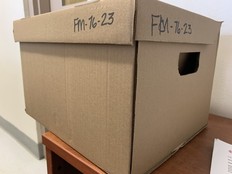N.B. course on Indigenous issues has no input from local First Nations
Mi'kmaq organization criticizes provincial government for hiring Saskatchewan firm to provide training to public servants

Article content
A Mi’kmaq organization says it supports new mandatory training for New Brunswick’s civil servants on Indigenous culture and history.
It just wonders why the Higgs Progressive Conservative government didn’t hire local Indigenous people to teach the program.
In recent weeks, the province’s 10,000 civil servants have been instructed to do a three-hour online, multi-media course offered by Reconciliation Education, also marketed as 4 Seasons of Reconciliation.
The Saskatchewan business developed the program in collaboration with the First Nations University of Canada in Toronto.
David Kelly, a spokesperson for the Department of Indigenous Affairs, said the province began discussions with the business in 2022 and signed a contract in 2023 to deliver the course over three years at a cost to taxpayers of $247,500, plus tax.
All public servants should understand the dark parts of Canadian history like residential schools and how government policies and laws can and do have devastating effects on First Nations people.
Dean Vicaire
Dean Vicaire, the executive director of Mi’gmawe’l Tplu’taqnn Inc., or MTI, the organization that represents eight of nine Mi’kmaq First Nations in New Brunswick, has mixed feelings about the initiative.
The program is based on the call to action of Canada’s Truth and Reconciliation Commission, or TRC, which spent six years travelling the country, hearing from more than 6,500 witnesses before delivering a thick report in 2015 on Indigenous issues. It called upon Canadians to begin the process of righting the wrongs committed against Indigenous Peoples across the nation.
“All public servants should understand the dark parts of Canadian history like residential schools and how government policies and laws can and do have devastating effects on First Nations people and their culture,” Vicaire told Brunswick News in an email.
“If a course can get public servants to think about how to implement the TRC’s Calls to Action, that’s a good thing. However, as the developers of the course would likely tell you, there is not a universal First Nations history and the implementation of the Calls to Action can look different in New Brunswick compared to Saskatchewan.”
Initially the program was only offered to civil servants in Indigenous Affairs. The rest of the civil service must now take the course and complete it by April, Kelly said.
Afterwards, it will be rolled out to about 18,000 school teachers and other personnel in the education system and finally to around 18,000 healthcare workers.
In its marketing, Reconciliation Education says 10 per cent of its profits will go toward First Nations University of Canada scholarships. In partnership with the university and Productions Cazabon, the business has produced short films and taught courses to 420,000 Canadians since being established in 2014.
“With our 3-hour, multimedia course, members of your community can learn about the history and culture of Indigenous communities in Canada, the history of residential schools, and treaties around the country,” it says on a promotional page. “Our course is interactive and illuminative, designed to begin dismantling the colonial point of view taught in Canadian educational institutions, and start the long journey toward reconciliation.”
Kelly said the course helps the provincial government uphold its commitment to introduce the Truth and Reconciliation Commission of Canada’s Calls to Action.
“The Government of New Brunswick has contracted 4 Seasons of Reconciliation to offer a unique and comprehensive online course that promotes a renewed relationship between Indigenous peoples and Canadians,” the spokesman wrote.
But the Higgs government has been at loggerheads with local First Nations on several hot-button issues.
Mi’kmaq and Wolastoqey chiefs have condemned it for refusing to negotiate on their big title claims, unilaterally cancelling decades-old tax agreements that allowed them to fund their own public services, and rejecting their demands for an inquiry into systemic racism in New Brunswick’s justice system after two Indigenous people were fatally shot by police in 2020 in separate incidents.
The Tory government has gone as far as telling public servants they cannot make Indigenous land acknowledgements in their emails or presentations – the kind of introduction you hear at university and college campuses all the time that state, “we recognize we are on the unceded territory of the…” for fear it will affect the lawsuit launched by the Wolastoqey Nation over their title claim for more than half of New Brunswick’s territory. The provincial government is a defendant in the case.
Vicaire said his organization and other local Indigenous groups are prepared to teach public servants about New Brunswick history, the treaties that were signed and issues that are important to First Nations.
The provincial government just needs to ask.
“The 4 Seasons of Reconciliation should not be considered a substitute for hands-on cultural teaching from the Nations whose territory the province operates in,” he said. “MTI and other Indigenous organizations have education modules that explain the history and treaties specific to this region. We are always open to providing those modules to the provincial government or any other organization.”












Postmedia is committed to maintaining a lively but civil forum for discussion. Please keep comments relevant and respectful. Comments may take up to an hour to appear on the site. You will receive an email if there is a reply to your comment, an update to a thread you follow or if a user you follow comments. Visit our Community Guidelines for more information.